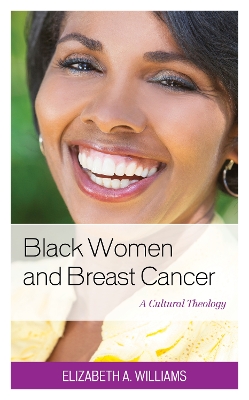Anthropology of Well-Being: Individual, Community, Society
1 total work
Christian theology at its core is a story about someone being in trouble. In response to this trouble, the triune God intervenes. God identifies with those in trouble, walking with them through the experience. Yet, the God of Christian theology goes a step further. God prevails over trouble. God is an overcomer. Black women with breast cancer identify with this God. They also see themselves in this theological narrative. They see themselves in the midst of troubles, troubles like racism, poverty and environmental exposures that create the disease affecting their bodies. They see the troubles of breast cancer, their biological disposition towards more aggressive cancers, later stage diagnoses, poorer prognoses, diminished quality of care and worse outcomes.
Black women also palpably feel the troubles breast cancer brings like fear, physical disfigurement, social isolation, being stereotyped for treatment decisions, abandonment and even death. Black women feel the myriad troubles breast cancer brings. But, Black women also know God in their troubles. They know an active God who identifies with and prioritizes their needs. They know this God, through scripture and experience, as God who puts them front and center. And because they know God as an overcomer and creative force, they know themselves as overcomers. For with God, their troubles do not last always.
Black women with breast cancer construct a cultural theology of breast cancer out of knowing God. Borne out of experiences of the Black Church, womanist theology and their intersectional identities of race, class and gender, this theological investigation, informed by anthropology, examines how Black women construct an ontology of who God is and how God operates and gain a God consciousness that shapes their response to the disease. Using pain, faith and testimony as tools to struggle against breast cancer Black survivors' theology transforms them from victims of breast cancer to change agents. Out of their lives as survivors comes a theology of complex hope- one cognizant of Black women's breast cancer disparities, yet oriented towards Black women's achievement of health in the present and the future- a sufficient hope to sustain Black women through it all.
Black women also palpably feel the troubles breast cancer brings like fear, physical disfigurement, social isolation, being stereotyped for treatment decisions, abandonment and even death. Black women feel the myriad troubles breast cancer brings. But, Black women also know God in their troubles. They know an active God who identifies with and prioritizes their needs. They know this God, through scripture and experience, as God who puts them front and center. And because they know God as an overcomer and creative force, they know themselves as overcomers. For with God, their troubles do not last always.
Black women with breast cancer construct a cultural theology of breast cancer out of knowing God. Borne out of experiences of the Black Church, womanist theology and their intersectional identities of race, class and gender, this theological investigation, informed by anthropology, examines how Black women construct an ontology of who God is and how God operates and gain a God consciousness that shapes their response to the disease. Using pain, faith and testimony as tools to struggle against breast cancer Black survivors' theology transforms them from victims of breast cancer to change agents. Out of their lives as survivors comes a theology of complex hope- one cognizant of Black women's breast cancer disparities, yet oriented towards Black women's achievement of health in the present and the future- a sufficient hope to sustain Black women through it all.
